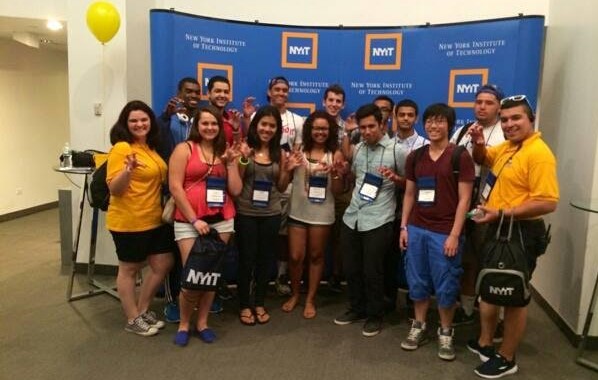Walking into the next orientation was always a nerve-wracking experience. The orientation leaders’ heads were filled with questions such as “Which student is going to give me a hard time?” and “What happens if I can’t convince them to participate?”
In OL training, we were prepared for these students. We were told what to say to try to convince them to step up and join in on the fun, and if that failed, keep trying. It felt like an uphill battle until I realized that convincing them isn’t going to help. There had to be another approach.
One orientation, while a student was convincing the rest of the group that orientation is “whack” (his words, not mine), I thought back to my training. One activity that stood out to me was when we all had brought in special objects and told stories as to why the object was so important, a classic open doors, open hearts situation. There were happy stories and there were heartbreaking stories. I learned a lot of things about my fellow OL’s, and was able to connect emotionally to each and every one of them.
It was time to get the troublesome student to open up (if he was willing).
I took him aside during lunch and had a genuine conversation about why orientation was so difficult for him to enjoy. He opened up and talked to me about his life. An hour later, he was back in the group, participating and making the best of the time he had with us. It was a fantastic switch, and pulled the group up as a whole. He went from a negative (someone who actively pulls people off the dance floor) to a 3. Everyone went from disliking the activities to laughing and enjoying them.
A few tips on engaging a ‘negative’ at orientation:
- Try to curb their comments around the rest of the group, or remove them from the room. Try to keep the rest of the group in a good mood.
- Connect with the student. Be real with them. There’s no use pretending, because they can see straight through that.
- Let them know you care. It’s important that they know you’re not talking to them because it’s your job. Be sincere when you explain why you’re taking the time to connect with them.
So, next time someone is difficult to work with, try to see it through their eyes. There could be something that’s holding them back from giving 100%, or something they want to talk about. Be gentle and kind, and watch the team rise!
 Sometimes, a student acting negatively is actually just really nervous. They need all the information they can get to remind them that things aren’t as scary as they seem.
Sometimes, a student acting negatively is actually just really nervous. They need all the information they can get to remind them that things aren’t as scary as they seem.
Check out our book First Year Student to First Year Success: 21 Things You NEED to Know When Starting College.




